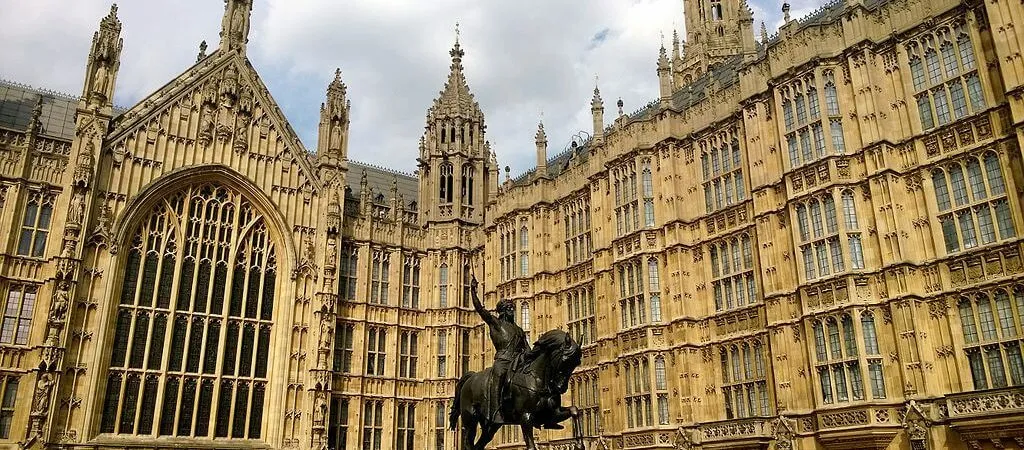United Kingdom – House of Lords has passed Investigatory Powers Bill (IPB), which is being called as ‘most extreme’ surveillance law in the history. Coming true as the repercussion of the Edward Snowden revelations.
The Investigatory Powers Bill (IP Bill) consolidates many of the powers that intelligence agencies and law enforcements can use to collect communications and its data into a single piece of legislation.
Despite the provisions and recommendations of Electronic Frontier Foundation (EFF) and Don’t Spy On Us (DSOU), and other Joint Committees of Intelligence and Security Committee (ISC) and Science and Technology Committee, the changes are not addressed in the Investigatory Powers Bill.
This is not just a grave concern for UK citizens. The effects of Investigatory Powers Bill will also set a precedent for the world. Authoritarian leaders with poor human rights records will look up to and points to the UK in justifying its own harsh surveillance regimes.
Jim Killock, Executive Director of Open Rights Group, commented: “The UK now has a surveillance law that is more suited to a dictatorship than a democracy. The state has unprecedented powers to monitor and analyse UK citizens’ communications regardless of whether we are suspected of any criminal activity — The impact of this will be felt beyond the UK’s shores. It is likely that other countries, including authoritarian regimes with poor human rights records, will use this law to justify their own intrusive surveillance powers.”
Such a move legalizes the illegal hacking activities of GCHQ spy agency of UK to hack into UK’s citizens and foreign entities without any prior notifications and collects communications data and records; it also allows both the GCHQ and police to install bugs into electronic devices from mobile devices to baby monitors.
Facing the harsh critics and dubbed as ‘Snoopers’ Charter.’ Theresa May has repeatedly said that the bill would not include automatic surveillance of people’s browsing history and any ‘intrusive’ actions would be subject to ‘strong oversight arrangement.’
The Investigatory Power Bill will affect:
Right to privacy: Our personal data, communications, and the Internet use will be collected, stored, and analysed, even if we are not suspect.
Caroline Wilson Palow, General Counsel of Privacy International commented, “The passage of the Investigatory Powers Act is a major blow to the privacy of people in the UK and all over the world. It sets a world-leading precedent, but not one of which the Government should be proud. Instead of reining in the unregulated mass surveillance practices that have for years been conducted in secret and with questionable legal authority.”
Right to freedom of expression: Freedom of expression relies on exploring freely and expression of ideas without the threat of disproportionate interference. The IP Bill will have a severe adverse effect on our freedom to share and discuss.
Investigative Journalism: The bill fails to provide sufficient guarantees for the protection of journalists and their sources. It also allows authorities to hack into journalist’s devices without any notifications.
“The NUJ has campaigned hard to oppose this unjustified and draconian legislation. The secret surveillance of journalists, whistleblowers and sources is an attack on democracy and the public’s right to know. The fight doesn’t stop here, we will continue to stick to our ethical principles to protect journalistic sources and seek to challenge this new law in every way that is possible,” commented Michelle Stanistreet, General secretary of National Union of Journalist.
Security of Internet: Mass hacking privileges could undermine the security of Internet.
Intelligence sharing: The Investigatory Powers Bill fails to prevent data sharing and integrity of technology between the US and the UK.
Independent Judicial: Judicial Commissioners wouldn’t be able to challenge surveillance decisions and reach their own verdict as to whether a warrant should be granted for surveillance. They’d would lack the opportunity to questions the surveillance requesting agency; to probe as to whether less intrusive methods could be adopted, or to ask for further evidence to justify the request.
Independent judicial authorization could mean better cooperation from international tech firms, who have expressed unease with this political authorization bill.
The inventor of the world wide web Tim Berners Lee has branded the Investigatory Powers Bill ‘inappropriate’ and urged members of the public to write to their respective MPs about it.
While speaking to the Economist radio he talked about the openness of the web, he said, “There are a huge number of fronts on which we have to battle. For example, making sure that countries don’t introduce laws that decrease the power of the citizen… don’t pass inappropriate laws, as the UK government is trying to do at the moment, to give the government too much power to spy on citizens.”
The intention of government is also vague when it comes to encryption. While Theresa May said she doesn’t plan to limit or ban end-to-end encryption, the bill empowers the government to order “the removal of electronic protection applied by a relevant operator to any communications or data.”
“Encryption is important in providing the secure services on the internet we all rely on, from credit card transactions and commerce to legal or medical communications,” commented chair Nicola Blackwood of Commons Science and Technology Select Committee. “The government needs to do more to allay unfounded concerns that encryption will no longer be possible.”
However, the people of Great Britain seem remarkably indifferent in fighting the bill and chances are there will not be outcry unless an inevitable hacking event takes place.
The world is seeing the mass acceptance of bulk surveillance, both in the UK and around the world, and it is becoming a fact of life. The move towards authoritarianism around the world makes a fighting back more imperative than before.
Share this article
About the Author
Peter Buttler an Infosec Journalist and Tech Reporter, Member of IDG Network. In 2011, he completed Masters in Cybersecurity and technology. He worked for leading security and tech giants as Staff Writer. Currently, he contributes to a number of online publications, including The Next Web, CSO Online, Infosecurity Mag, SC Magazine, Tripwire, GlobalSign CSO Australia, etc. His favorite areas Online Privacy, AI, IoT, VR, Blockchain, Big Data, ML, Fintech, etc. You can follow him on twitter.
More from Peter ButtlerRelated Posts

Passengers’ Data Stored on User Devices, not on DigiYatra Storage, says India Govt
KEY TAKEAWAYS Unblocking streaming content from Amazon Prime is easy only if you know the reliable V...

NCSC Chief: Clear Rules Needed to Prevent Cyberspace Conflict and Struggle
A safe and secure digital world necessitates a clear definition and enforcement of international cyb...

‘Revive’ has been upgraded to a banking Trojan on Android
This month, Cleafy’s security researchers discovered a new Android Banking Trojan in the wild....

Asian Industrial Control Systems Targeted by Hackers Using the Shadowpad Backdoor
Unpatched Microsoft Exchange servers in various Asian countries were the target of an attack campaig...
Data Breaches Could Occur Due to Kubernetes Misconfigurations That Were Leaked.
Over 900,000 Kubernetes (K8s) have been discovered to be vulnerable to malicious scans and/or data-e...

Attacks by Cybercriminals Will Become the Main Threat in 2024. Privacy Issues Tendencies
Internet Privacy is the main Concern today Advertisers track your online activities and interf...





